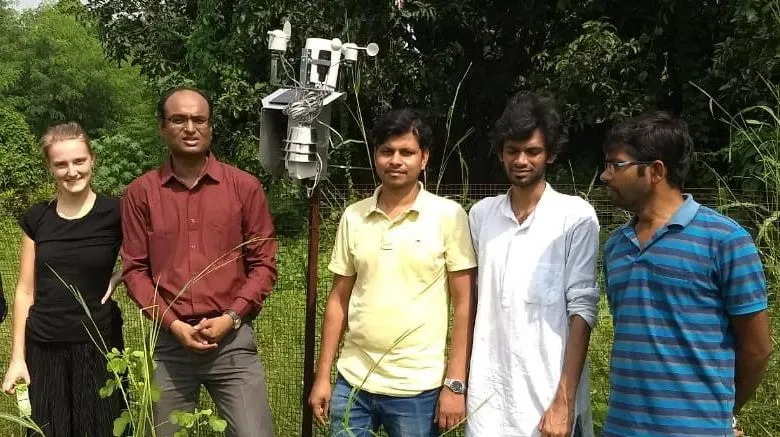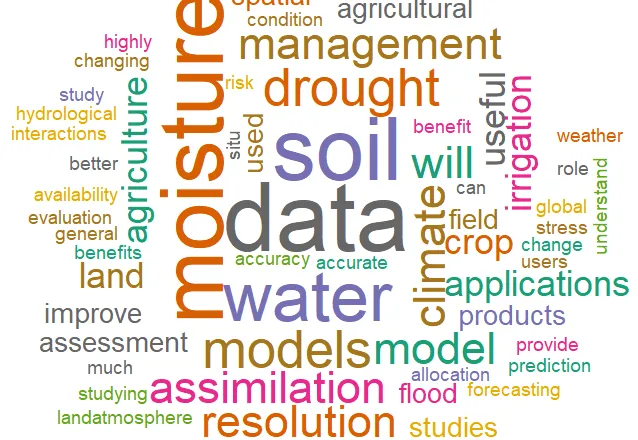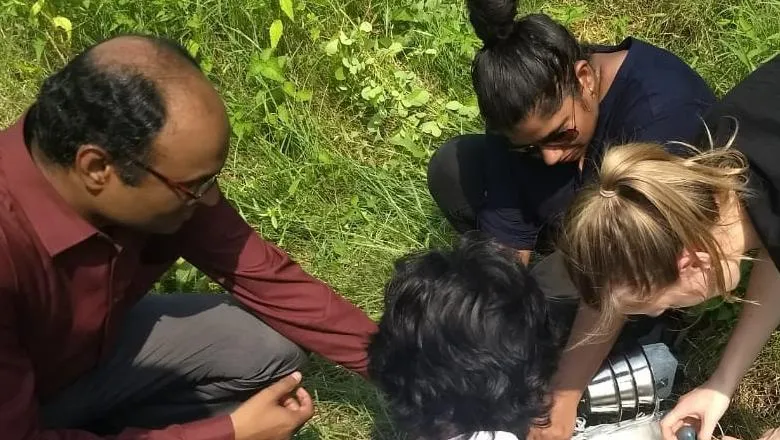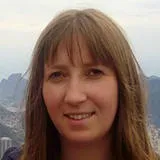King’s shows how understanding of the earth’s climate can be improved through satellite moisture data
A satellite soil moisture observation project with the India UK Water Centre (IUKWC), led by Geographers from King’s, has highlighted the huge benefits of satellite soil moisture observations across a range of disciplines.
The project explored the applications of satellite soil moisture datasets in the UK and India. Soil moisture is a critical parameter for understanding the Earth’s climate and hydrological cycles.
Satellite soil moisture observations can be used to improve flood forecasting and drought monitoring, and they also show promise for supporting commercial agricultural services (e.g. assessing crop conditions, predicting yields and monitoring irrigation) and government decision making.
Dr Emma Tebbs, Lecturer in Physical Geography and Earth Observation and Project Lead, said: “Satellite soil moisture observations offer huge benefits across a range of disciplines including weather forecasting, agricultural management, drought and flood prediction and climate science.
The satellite-based soil moisture estimates can be incorporated into models to improve our understanding of how the Earth’s climate and hydrological cycles are changing. Our research has highlighted that to take full advantage of the benefits of satellite soil moisture datasets there is a need to make the data easily accessible to raise awareness of available products and to provide training opportunities.
Dr Emma Tebbs

Sizable improvements
Over the last ten years there have been sizable improvements in our ability to measure soil moisture from space using satellite sensors.
The review of current research highlighted the potential for satellite-based soil moisture products to improve monitoring and forecasting in India and the UK.
Satellite soil moisture is already used operationally for numerical weather prediction in the UK, and an ongoing India-UK collaboration is investigating its potential for improving predictions of the India monsoon.
A user survey revealed barriers limiting the uptake of satellite soil moisture data including availability of ground-based measurements for validation, the coarse spatial resolution of current satellite products, data access, training and awareness.

As part of this work, we conducted a pilot demonstration to showcase the possibility of using low cost soil moisture sensors for generating ground-based measured to assess the accuracy of satellite products
Dr Emma Tebbs
Recommendations
To take advantage of the benefits and opportunities offered by satellite soil moisture products the following recommendations were proposed:
- Ensure that satellite soil moisture data is available open access and is easily accessible through a user-friendly web interface
- Raise awareness of available satellite soil moisture products amongst potential users
- Provide training opportunities in the practical application of satellite soil moisture products
- Develop products with well characterised uncertainties and finer spatial resolutions to meet user requirements
- Increase the availability and geographic coverage of ground-based soil moisture data to allow the accuracy of satellite products to be assessed
- Develop a user community to support collaboration across disciplines for the application of satellite soil moisture products
Read the report here and Water Brief here.
The India-UK Water Centre (IUKWC) is a virtual joint centre established in 2016 and funded by the Indian Ministry of Earth Sciences (MoES) and the UK’s Natural Environment Research Council (NERC). The aim of the India-UK Water Centre is to promote cooperation and collaboration between NERC-MoES water security research in order to establish a platform for, and legacy of, long-term partnerships and dialogue between Indian and UK water researchers, water policy-makers and water businesses.

Delivering the UN Sustainable Development Goals
King's College London has a long and proud history of serving the needs and aspirations of society. We are committed to the UN Sustainable Development Goals (SDGs) as a university, and we use them as a framework for reporting on our social impact. The SDGs are a set of 17 goals approved by the 193 member states of the United Nations (UN) which aim to transform the world by 2030. This research supports SDGs 6, 13, 16 and 17.




